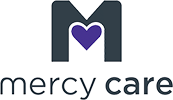
Obsessive Compulsive Disorder (OCD) Treatment

Personalized OCD Treatment in Arizona
Find Relief from the Thoughts That Will Not Let Go
Obsessive Compulsive Disorder (OCD) affects over 2 million adults in the U.S., and many more live with symptoms for years before receiving the correct diagnosis. OCD is a serious neuropsychiatric disorder that involves recurring, unwanted thoughts (obsessions) and repetitive behaviors or mental rituals (compulsions) that an individual feels driven to perform.
At Lifeline Behavioral Health, we tackle obsessive thinking head on. Our team helps you find clarity and feel more grounded in daily life.

What OCD Is and How It Affects Daily Life
OCD is a chronic mental health condition involving two main components: obsessions and compulsions. Obsessions are intrusive thoughts, urges, or images that cause distress, anxiety, or discomfort. Compulsions are behaviors or mental actions aimed at reducing that anxiety, even if only temporarily.
These cycles often consume significant time, interfere with relationships, and leave individuals feeling stuck. Common themes include contamination fears, fear of harming others, perfectionism, symmetry, or intrusive taboo thoughts. OCD does not respond to willpower or logic alone. However, it does respond to structured, professional treatment.

Symptoms of OCD
More Than Just Perfectionism
Everyone experiences unwanted thoughts occasionally. For individuals with OCD, these thoughts do not fade, and the effort to “undo” or neutralize them becomes exhausting.
- Repetitive checking (locks, stoves, appliances)
- Excessive cleaning or compulsions to wash your hands
- Fear of contamination or illness
- Distress over order, symmetry, or exactness
- Obsessions around harm, religion, or taboo thoughts
- Avoidance of people, places, or situations
- Time-consuming rituals that interfere with daily functioning

How We Treat
OCD Treatment at Lifeline Behavioral Health
OCD is treatable, but it requires a structured, evidence-based approach. We create individualized treatment plans based on clinical needs and personal goals.
Our OCD treatment includes individual counseling, group therapy, medication management, and Exposure and Response Prevention, with CBT, DBT, and mindfulness to reduce anxiety and compulsive behaviors.
If medication is part of your treatment, our psychiatric providers monitor it closely and make adjustments. We also look at the bigger picture and treat issues like anxiety, trauma, or depression that can intensify OCD.

Outpatient Programs for Lasting Relief
Intensive Outpatient Program (IOP):
Provides a structured environment for individuals who need more than weekly therapy. Participants attend multiple group sessions and meet regularly with a therapist. Tracks are available in four- and eight-week formats and include aftercare planning.
Partial Hospitalization Program (PHP):
Offers full-day therapeutic engagement with daily sessions designed to address obsessive thinking, reduce compulsions, and build effective coping skills. Optional housing is available for individuals who benefit from structured support.

Support That Meets You Where You Are
Reaching out for OCD treatment can feel overwhelming, especially when intrusive thoughts make it hard to trust your environment or routines. We offer flexible options that allow you to begin healing in a way that feels manageable.
You can participate in therapy in person or through secure telehealth, depending on what feels comfortable for you. Our clinics are inclusive, trauma-informed spaces that welcome individuals of all backgrounds, including those navigating cultural, religious, or family-related triggers.
A Lifeline to the Life You Deserve
Taking the first step toward treatment is courageous. Our experienced team will support you with compassion, clinical expertise, and a treatment plan that works.
Why OCD Can Be Hard to Recognize
It Doesn’t Always Look the Way You Expect
Many people assume OCD is all about being clean or organized, but the reality is far more complex. OCD often hides behind mental rituals, intrusive thoughts, or private behaviors that aren’t visible to others.
Some individuals spend hours each day stuck in mental loops, silently reviewing conversations, mentally checking for mistakes, or avoiding people and places altogether. Because these patterns don’t always look like compulsions, OCD is often misdiagnosed or misunderstood.
Bringing OCD into the light starts with understanding that obsessions or compulsive behavior aren’t always visible, but they are very real.
What Triggers Obsessive Compulsive Disorder Symptoms?
The onset and severity of OCD symptoms can vary, but common triggers include high stress, changes in routine, trauma, or major life transitions. Some individuals experience flare-ups during illness, postpartum periods, or after loss.
OCD is a complex psychiatric disorder, and symptoms may increase when a person feels emotionally overwhelmed or out of control. Triggers often activate underlying anxiety, which fuels both obsessions and compulsions. Understanding personal triggers is an important part of any effective treatment of OCD
Client Successes

Get Connected to Obsessive Compulsive Disorder Support in Arizona
Whether symptoms began recently or have been present for years, there is support available. At Lifeline Behavioral Health, we provide compassionate, evidence-based care to help people with OCD regain stability and confidence.
We offer services across Arizona, both in-person and via telehealth, with PHP and IOP options for individuals who need additional structure. Wherever you are, we are here to help you take the next step.
No Insurance? No Problem.
Not having insurance should not prevent access to care. Lifeline offers straightforward cash-pay options for all services. Many individuals prefer this route for added flexibility and confidentiality. Contact our team to explore the options available to you.
Insurance Coverage
Lifeline Behavioral Health accepts many major insurance plans. If your provider is not listed, we are happy to verify your coverage and help you understand your options, including out-of-network care or private pay.

















"*" indicates required fields
Frequently Asked Questions About OCD
What causes OCD?
OCD may develop through a combination of genetic, neurological, and environmental factors. Stress or trauma may act as triggers in individuals who are predisposed.
Is OCD a form of anxiety?
Yes. OCD is classified as an anxiety disorder in the Diagnostic and Statistical Manual of Mental Disorders (DSM). Although symptoms are unique, anxiety drives both obsessions and compulsions.
Is OCD genetic?
Yes. Individuals with a first-degree relative who has OCD are at a higher risk of developing the condition themselves.
What is the difference between OCD and perfectionism?
Perfectionism is a personality trait. OCD is a psychiatric disorder defined by distressing obsessions and compulsions that interfere with functioning.
Are people with OCD at risk of acting on their obsessions?
No. Most individuals are distressed by their thoughts and do not act on them. The thoughts reflect anxiety, not intent, which is why treatment focuses on breaking the fear-compulsion cycle.
Do I need medication to manage OCD?
Not always. Some individuals benefit from therapy alone. Others find that medication helps reduce symptoms enough to engage fully in treatment.
Can OCD be cured?
There is no official cure, but OCD is highly treatable. Many people achieve lasting symptom relief with consistent care.
Can someone with OCD live a normal life?
Yes. With the right support and ongoing treatment, individuals with OCD can lead productive, fulfilling lives.
Is telehealth effective for treating OCD?
Yes. ERP and CBT-based therapies are highly effective when delivered via secure telehealth.
How can I help someone with OCD?
Encourage them to seek professional treatment, be patient, and avoid reinforcing compulsions. Your understanding and support make a meaningful difference.

